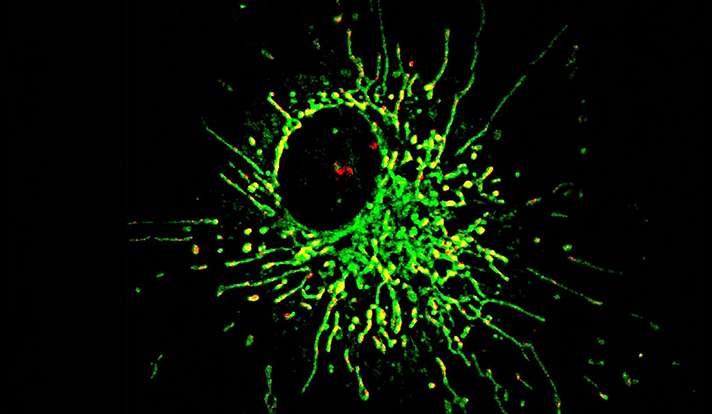Study pinpoints key pathway in inflammation and aging

In patients with colitis, a serious condition affecting the gut, the immune system turns against the body's own microbes, causing inflammation. To combat this inflammation, scientists have focused in on a chemical signal known as IL-10. While it's understood that IL-10 plays a critical role in controlling inflammation and preventing colitis, it's not clear how.
In a new study published in Science, immunobiologist and senior author Ruslan Medzhitov led a research team that examined the inflammatory response in mice and people lacking the IL-10 signal. They found that IL-10 works by blocking the metabolism of immune cells that are part of the inflammatory response. They also noted that IL-10 clears damaged mitochondria—the power generators within cells. The accumulation of this cellular damage in turn promotes inflammation.
The finding deepens understanding of a key process in inflammation, and could lead to therapies that target this pathway in colitis, said the researchers, and it also has implications for preventing or treating degenerative diseases that result from cell damage and often occur with aging.
More information: W. K. Eddie Ip et al. Anti-inflammatory effect of IL-10 mediated by metabolic reprogramming of macrophages, Science (2017). DOI: 10.1126/science.aal3535

















